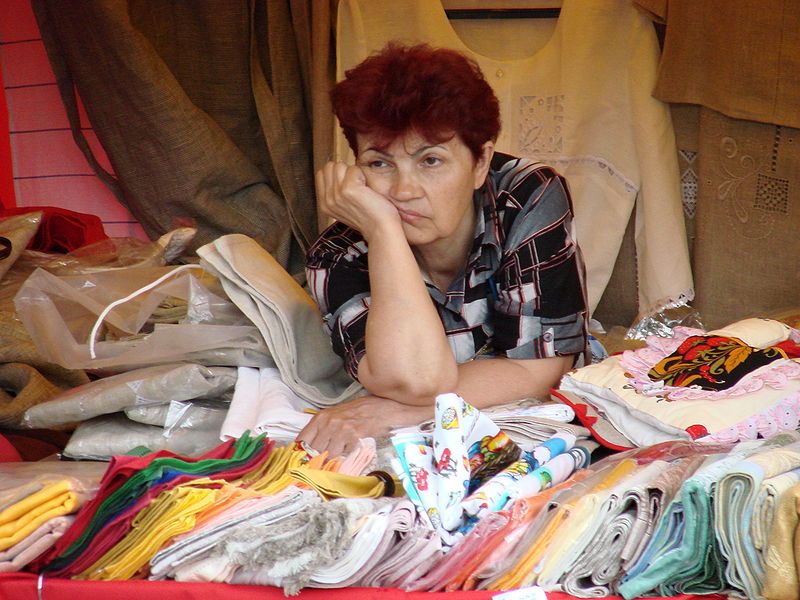Surprising Science
All Stories
Seniors who lose their jobs or retire voluntarily are likely to gain weight, become hypertensive and even develop depression, says professor of medicine at U.S.C., Katherine Schlaerth.
In a new study, U.C.L.A. life scientists report that veterans of war, rape victims and other witnesses to horrific crimes could have the traumatic memories that haunt them weakened in their brains.
Biochemist Dr. Simon Easterbrook-Smith says there is no difference between eating a tomato containing a GM protein from fish, for example, and eating an unmodified tomato with a piece of fish.
Scientists have found that certain fish with complex brain functions are evolving at a relatively quick rate—will humans’ similarly complex brains inspire new species to evolve?
An anticircumcision group in San Francisco is the latest to join the fray over the alleged health benefits of the practice by pushing for a ban—is it simply a barbaric procedure?
Rice University grad student Ryan Guerra is on a mission to extend the range of WiFi signals from a few hundred feet to a mile thanks to some nifty engineering and a few empty TV channels.
Personal computers that are optimized to interact with the cloud and give end users the best possible experience when accessing applications and services are being developed and marketed.
Artificial brains have long been a central theme in science fiction but they inched one step closer to reality at the University of Southern California where researches have created synthetic synapses.
With huge budgets and entire departments dedicated to social media, big business has conceived of some very innovative ways to use social media that small business can take advantage of.
An M.I.T. study argues that keeping nuclear waste in temporary storage for decades, rather than permanently burying it, would save money and create energy dividends in the long run.
A cutting-edge experiment hunting for antimatter galaxies and signs of dark matter that was very nearly cancelled is finally poised to voyage into orbit aboard the next-to-last space shuttle mission.
Philosophers may have spent many ‘sleepless nights of the soul’ contemplating the existence of God. Yet bleary-eyed physicists may have beaten them to the prize: has the so-called ‘God particle’ been discovered?
Wired—which says you should care about the controversy over iPhones and Android smartphones tracking users’ location—reports on legal action by two Apple customers.
Psychology can and should do more than reduce mental suffering, argues positive psychology guru Martin Seligman in his new book. It should encourage optimism about life, he says.
Collecting life stories and human brains is the business of the University of California San Diego’s brain bank. Donal Trump’s would be a good fit, says brain bank neurologist Jacopo Annese.
Patricia Churchland, a philosopher at the University of California San Diego, says understanding morality means understanding its roots in the brain, i.e. our “circuitry for caring”.
Another chapter in the ongoing David-and-Goliath saga between organic farmers and the agriculture and biotechnology company Monsanto kicked off recently with a lawsuit filed in federal court.
Exercise is a necessity for cancer patients and survivors, but their condition poses some unique challenges. Personal trainer Josie Gardner recommends four exercises tailored for cancer patients.
The Navy is experimenting with acupuncture and soothing atmospherics to treat Marines suffering from mild cases of traumatic brain injury—the most prevalent wound of the Afghan war.
Are medicines developed from genetic research just hype? The promises of genomic treatment have been overblown, says James Evans, a geneticist at the University of North Carolina.
Here is a list of some of the health crises that weren’t—crises that were either completely unfounded or that received an unwarranted amount media attention commensurate to their actual risk.
If you haven’t yet enabled encrypted backups for your iPhone or iPad, now is definitely the time to start, says Ars Technica, after the revelation that Apple devices track users’ whereabouts.
A leading nanotechnology scientist has raised questions over a billion dollar industry by boldly claiming that there is a limit to how small nanotechnology materials can be mass produced.
Inspired by the likes of Apple and Google, which were created in home garages, biotechnology hobbyists and hackers are asking tough questions and changing how science is done.
The revolutionary applications of mobile phone technology today are derived from advances that were a long time in the making. This biography of an idea explores key moments in the cell phone’s development.
While cell phones offer liberating possibilities for the world, they also threaten personal privacy. Harvard Law School Professor Jonathan Zittrain takes this Devil’s Advocate position.
Cell phones are being used in many ways today that transcend their original intended function. Big Think Delphi Fellow Aydogan Ozacan is applying this technology to breakthroughs in medicine.
Physicists have proposed that there could be dozens of dimensions in addition to the normal three we experience in daily life. But where are they?
The Earth has 657 more barrier islands than previously thought, according to a new global survey by researchers from Duke University and Meredith College in Raleigh, N.C.
The Earth has a long shelf life, but it is, alas, temporary. Before the Sun explodes in 5 billion years, there are a number of extraterrestrial threats to our planet, from rogue black holes to magnetars.



























